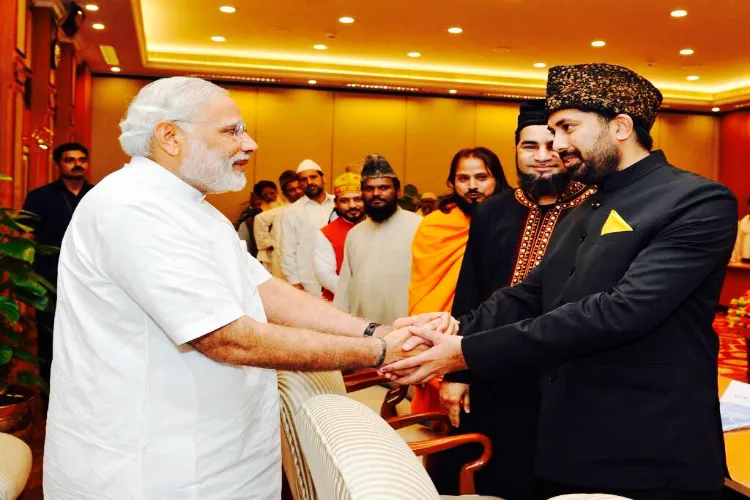
New Delhi
In Islam, cleanliness (taharah) is not just a matter of personal hygiene but a divine obligation intertwined with spiritual purity.
The Prophet Muhammad (peace be upon him) said, “Cleanliness is half of faith” (Sahih Muslim), emphasizing that caring for our surroundings is a vital aspect of our connection with Allah. This principle is particularly relevant when addressing the need for urban redevelopment, especially in densely populated slums like Dharavi in Mumbai, Seelampur in Delhi, and Rajabazar in Kolkata, where millions live in cramped, unhygienic, and unsafe conditions.
The Quran repeatedly highlights the significance of cleanliness and beautification, both in personal life and communal spaces. Allah says:
“Indeed, Allah loves those who are constantly repentant and loves those who purify themselves.” (Quran 2:222).
When applied to urban environments, this verse calls us to ensure that our cities reflect divine order and cleanliness. Slums such as Dharavi, one of Asia’s largest, housing over 700,000 people in less than 2.5 square kilometers, highlight the urgent need for redevelopment to provide clean and safe living conditions.
Spiritual teachings emphasize the importance on harmony between the inner self and the external environment. Hazrat Khwaja Moinuddin Chishty (r.a.), the revered saint of Ajmer Sharif, taught that “service to humanity is the highest form of devotion.” Transforming slums like Dharavi, Seelampur, and Shivajinagar in Bangalore into livable, hygienic, and green spaces is a profound act of service, enhancing the quality of life for marginalized communities.
Spiritual way of life view urban cleanliness as an extension of sacred discipline. The redevelopment of slums provides shade—protection and dignity—to those most vulnerable in society, uplifting them in the light of divine compassion.
Slums like Dharavi in Mumbai, home to a thriving informal economy, highlight both the resilience of its residents and the systemic neglect they endure. Overcrowding, inadequate sanitation, and a lack of clean drinking water are common issues. These challenges are not confined to Mumbai; neighborhoods such as Seelampur in Delhi and Rajabazar in Kolkata face similar conditions.
Redeveloping these areas is not just about infrastructure; it is about restoring human dignity. Allah reminds us in the Quran:
“And We have certainly honored the children of Adam.” (Quran 17:70).
This honor is reflected in our responsibility to ensure that every individual lives in conditions befitting their inherent worth.
Dharavi, Mumbai:
While Dharavi remains a symbol of urban poverty, its redevelopment plans, including mixed-use housing and green spaces, offer hope for its residents. Projects such as the Dharavi Redevelopment Plan aim to create better housing while retaining the economic vibrancy of the area.
Seelampur, Delhi:
Known for its dense population and narrow lanes, efforts to improve sanitation and introduce waste management systems in Seelampur showcase how small changes can lead to significant improvements in hygiene and public health.
Rajabazar, Kolkata:
This neighborhood, known for its historic charm and congested lanes, has seen initiatives like the introduction of community toilets and upgraded waste collection systems, which have greatly improved living conditions.
Indira Canteens, Bangalore:
While not directly tied to slum redevelopment, these canteens provide affordable, nutritious meals to urban poor, showing how holistic approaches can address both living standards and health.
The Prophet Muhammad (peace be upon him) emphasized communal responsibility, stating:
“The best of people are those that bring the most benefit to others.” (Sunan Al-Kubra).
In India, the redevelopment of slums is an opportunity to fulfill this call. Initiatives like the Swachh Bharat Abhiyan (Clean India Mission) have laid the groundwork, but there is a need to focus on transforming congested neighborhoods into spacious, hygienic, and green settlements.
Urban redevelopment must prioritize:
Affordable Housing: Ensuring residents are not displaced but relocated into well-designed housing.
Sanitation and Clean Water: Establishing proper drainage, waste disposal systems, and access to clean water.
Green Spaces: Creating parks and gardens to promote physical and mental well-being.
Education and Skill Development: Empowering residents with the knowledge and skills to maintain their upgraded neighborhoods.
Change is often met with resistance, but it is essential for growth. The Quran reminds us:
“Indeed, Allah will not change the condition of a people until they change what is in themselves.” (Quran 13:11).
Accepting redevelopment as a positive change aligns with our spiritual duty to create environments that nurture both body and soul. By rehabilitating slums, we move closer to fulfilling our obligations as stewards of God’s creation.
The redevelopment of urban slums like Dharavi, Seelampur, and Rajabazar is not just an infrastructural challenge but a moral and spiritual imperative. Cleanliness, dignity, and sustainability are rights that every individual deserves, as emphasized in spiritual teachings and Sufi wisdom.
READ MORE: Christian-Muslim Tanzania is country partner in Gita Mahotsav at Kurukshetra
As India strives to uplift its urban poor, let us embrace this sacred duty with compassion and resolve, transforming our cities into places that honor the divine within every individual.
